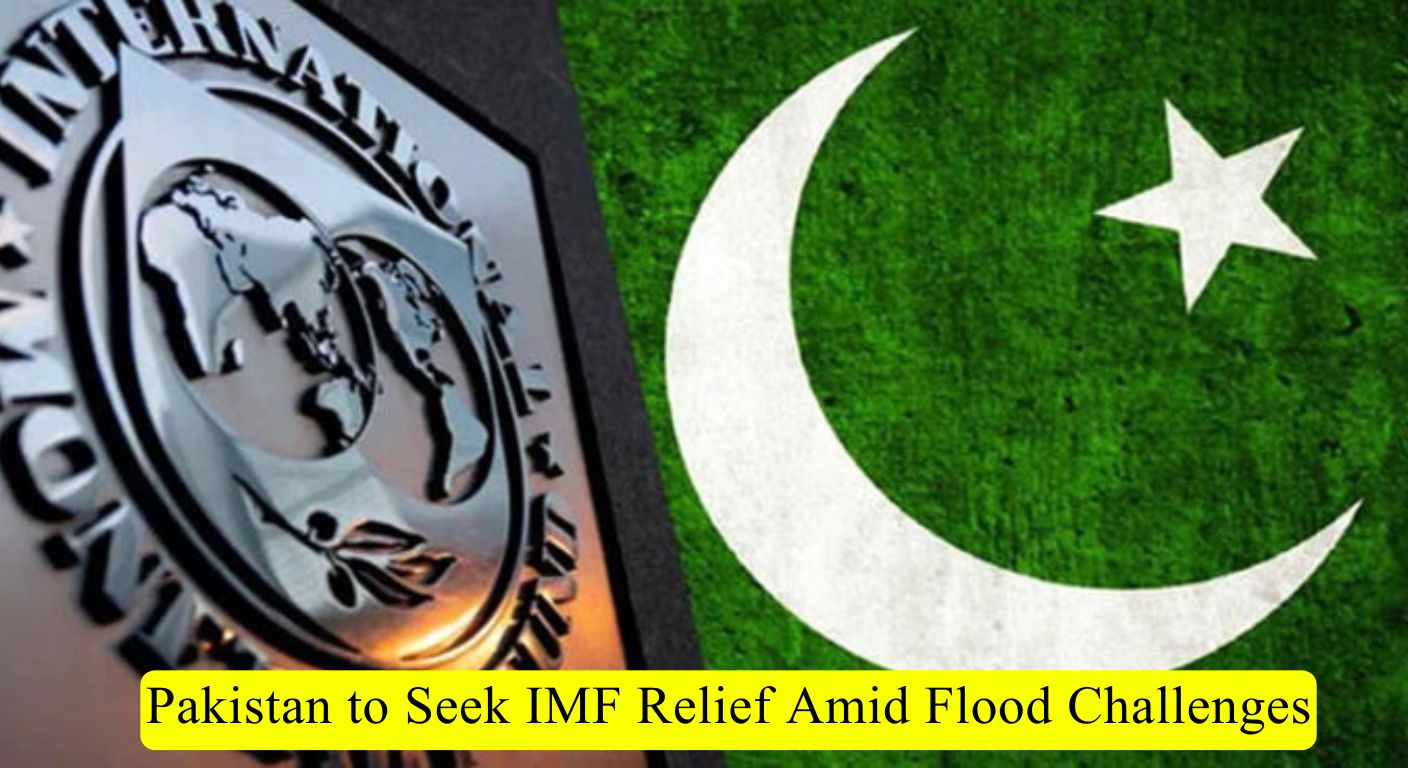Pakistan to Seek IMF Relief Amid Flood Challenges

Islamabad: Pakistan has begun efforts to secure relief during the latest round of talks with the International Monetary Fund (IMF). The government is hoping to convince the global lender to provide flexibility in economic targets, citing the widespread damage caused by floods and heavy rains across the country.
According to official sources, Prime Minister Shehbaz Sharif has directed the finance team to adopt a strong but diplomatic position in the negotiations. The focus is to obtain concessions that will help Pakistan manage its economic challenges without introducing new taxes or a mini-budget, which could further burden the public.
Government Strategy for IMF Talks
Pakistan is currently under the Extended Fund Facility (EFF) program with the IMF. Each review under this program is crucial because it determines whether the country will receive the next tranche of funds. For Pakistan, which is already facing inflation, high debt payments, and declining growth, the timing of the floods has made the situation even more complicated.
The government’s plan during the review talks is clear:
- Avoid introducing a mini-budget.
- Show that existing tax measures can generate sufficient revenue if enforced strictly.
- Request temporary concessions to provide relief to flood-hit communities.
Officials believe that demonstrating fiscal discipline, while also highlighting the extraordinary challenges of natural disasters, can persuade the IMF to show flexibility.
Relief Measures on the Table
One of the top priorities for Pakistan is to secure relief for households and farmers affected by floods. The government wants to present a package that balances fiscal responsibility with humanitarian needs.
Key proposals include:
- Electricity Bill Relief
- The government is expected to push for IMF approval to reduce or delay electricity payments for families in flood-affected areas.
- This would protect vulnerable communities from unbearable costs at a time when they are struggling to rebuild their homes and livelihoods.
- Agricultural Loan Concessions
- Farmers who lost crops and livestock during floods need time and support to recover.
- Pakistan will request the IMF to agree on easing repayment schedules for agricultural loans, which would provide direct relief to the rural economy.
- Revised Tax Targets
- The Federal Board of Revenue (FBR) is facing shortfalls in tax collection because businesses and households have been hit hard by natural disasters.
- Islamabad wants the IMF to revise the tax collection targets downward, making them more realistic under current conditions.
- GDP Growth Target Adjustments
- The government also intends to negotiate a small downward revision in the GDP growth target.
- Officials will argue that flood disruptions have slowed economic activity, particularly in agriculture and small industries.
Broader Economic Context
Pakistan’s economy has been under strain for several years due to rising inflation, heavy debt obligations, and a widening fiscal deficit. While IMF programs have provided temporary breathing space, they often come with strict conditions, such as new taxes, higher energy tariffs, and reduced subsidies.
This time, however, the government is highlighting that the floods have created an extraordinary situation. Losses in infrastructure, agriculture, and trade are estimated to be in billions of rupees. Without international support, Pakistan fears a deeper economic crisis that could also impact social stability.
Political Dimension
For Prime Minister Shehbaz Sharif’s government, the IMF talks are not only about economics but also about politics. Rising inflation and high utility bills have already created public anger. Any additional tax measures, such as a mini-budget, could increase political pressure and weaken the government’s standing.
By seeking relief from the IMF, the government hopes to show the public that it is protecting their interests while still fulfilling international commitments. Analysts say this balancing act is crucial for the government’s credibility at home and abroad.
IMF’s Possible Response
While Pakistan’s arguments are based on genuine concerns, the IMF is known for its cautious and tough stance. It usually insists that countries under its programs stick to agreed reforms, even in difficult times.
However, in past cases of natural disasters, the IMF has shown some flexibility by allowing temporary adjustments. For example, after major floods in South Asia and earthquakes in other regions, the Fund has occasionally revised targets or delayed strict deadlines.
Experts believe the IMF may agree to some concessions for Pakistan, but it is unlikely to accept all demands. The Fund may push for clear evidence of tax enforcement and may demand transparency on how relief measures will be funded.
Challenges Ahead
Even if Pakistan secures partial relief, challenges remain:
- Debt Payments: Pakistan must continue servicing large external debts, which take up a significant portion of its revenue.
- Inflation Pressure: Food shortages due to floods may increase inflation, making life harder for ordinary citizens.
- Energy Sector Strain: High international oil and gas prices mean Pakistan’s energy sector will continue to face financial stress.
- Public Trust: Citizens expect quick relief, but IMF negotiations often move slowly and can take weeks before results are visible.
Importance of Flood Relief in Talks
The scale of the recent floods makes this round of IMF talks especially critical. Millions of people have been displaced, agricultural land has been destroyed, and infrastructure such as roads and bridges has been damaged. The government sees IMF relief as a way to redirect funds toward reconstruction and rehabilitation.
Officials are preparing detailed presentations to show the IMF how floods have affected fiscal performance. This includes:
- Evidence of reduced tax collections.
- Data on damaged crops and lower exports.
- Impact on GDP growth forecasts.
By presenting a clear picture, Pakistan hopes to strengthen its case for temporary concessions.
Conclusion
Pakistan’s latest negotiations with the IMF are about more than just numbers. They are about balancing economic stability with humanitarian needs in the aftermath of devastating floods.
The government is determined to avoid a mini-budget, arguing instead for smarter enforcement of existing tax measures. Relief for flood-affected households and farmers is at the heart of the proposals, while adjustments to tax and growth targets are being presented as reasonable and necessary.
Whether the IMF will accept these arguments remains to be seen. The Fund may grant some relief but will likely keep a close watch on Pakistan’s fiscal discipline. For the Pakistani government, however, even partial concessions would provide breathing space at a time of national crisis.






